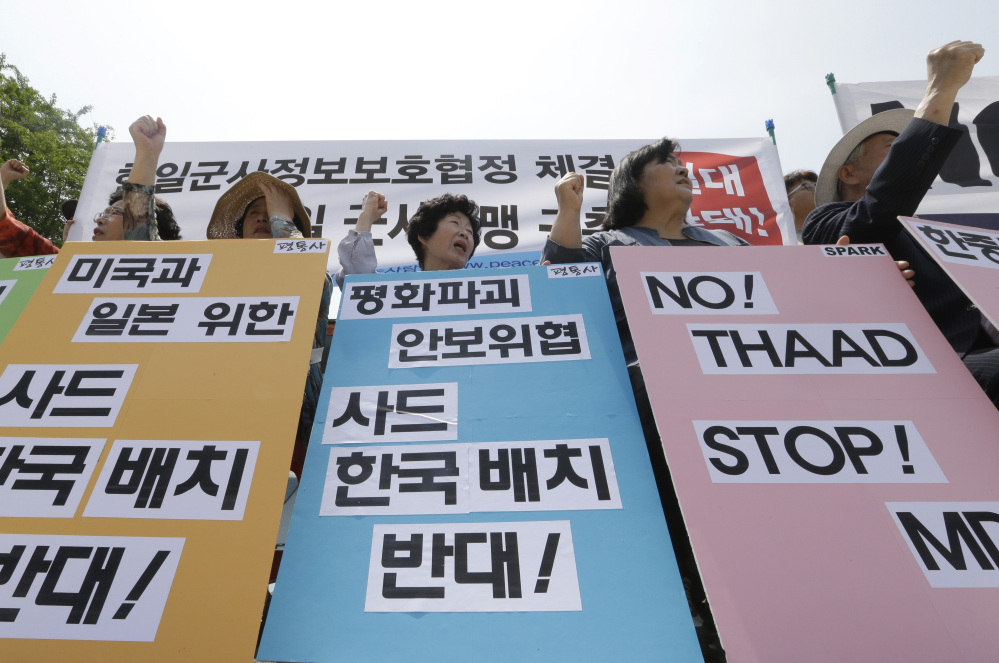SEOUL, South Korea — A North Korean missile launch likely failed on Tuesday, the U.S. and South Korean militaries said, the fourth in a series of high-profile failures that somewhat temper recent worries that the North is pushing quickly toward its goal of a nuclear-tipped missile that can reach America’s mainland.
South Korea’s Yonhap news agency said the missile was a powerful intermediate-range Musudan, which could potentially reach U.S. military bases in Asia and the Pacific.
Yonhap cited an unidentified government source as saying the missile exploded at a mobile launch pad as soon as the launch button was pressed. The report, if confirmed, suggests the missile may have even failed to lift off. Yonhap did not say how its source obtained the information.
South Korea’s military couldn’t confirm the report. The Joint Chiefs of Staff said in a statement that North Korea attempted to launch an unidentified missile early in the morning from the eastern coastal town of Wonsan, but that it likely failed. It released no other details.
The U.S. Department of Defense said in a statement that its assessment also indicated that the launch was a failure. It condemned the launch as a violation of U.N. Security Council resolutions that prohibit North Korea from using ballistic missile technology.
Despite the recent failures, there have been growing worries about North Korea’s nuclear and missile activities this year, which include a nuclear test in January and a rocket launch in February that outsiders saw as a test of banned long-range missile technology.
White House spokesman Josh Earnest said the failed missile test did not pose a threat to North America. But he cautioned that “North Korea’s continued pursuit of ballistic missile and nuclear weapons capabilities pose a significant threat to the United States, our allies, and to the stability of the greater Asia-Pacific.”
North Korean leader Kim Jong Un issued an order in March that tests be conducted of a nuclear warhead and ballistic missiles capable of carrying such warheads. The order was thought to be part of North Korea’s response to annual South Korea-U.S. military drills that it sees as a rehearsal for an invasion.
“I think they keep firing (Musudans) because they’ve continuously failed” in previous launches, said Lim Eul Chul, a North Korea expert at South Korea’s Kyungnam University. “They’ll continue to make efforts to upgrade (Musudan’s) capability to a level that can satisfy their leader.”
Send questions/comments to the editors.



Success. Please wait for the page to reload. If the page does not reload within 5 seconds, please refresh the page.
Enter your email and password to access comments.
Hi, to comment on stories you must . This profile is in addition to your subscription and website login.
Already have a commenting profile? .
Invalid username/password.
Please check your email to confirm and complete your registration.
Only subscribers are eligible to post comments. Please subscribe or login first for digital access. Here’s why.
Use the form below to reset your password. When you've submitted your account email, we will send an email with a reset code.